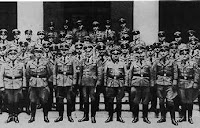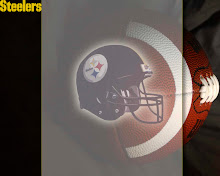
In this section of Night Eliezer and the rest of the Jews are marching in the harsh cold to Buchenwald. All of the Jews are suffering and dieing because of starvation and the cold, including Eliezer's father, who is now very weak. People start to throw bread and money into the crowd of Jews, and chaos erupts. At this point, all the Jews care about is food. Eventually they make it to Buchenwald, and Eliezer's father seems to be very close to death. When Eliezer's father falls asleep, Eliezer looks for him, but he begins to think that he will be better off without him. He does find him, by accident, and he gives him his food and water to hopefully help him. The other Jews take advantage of Eliezer's father and beat him and steal his food. One day an SS officer comes into the barrack and beats Eliezer's father on head because of his cries for water. When Eliezer wakes up the next morning, he finds that his father has been taken to the crematory. Instead of crying, Eliezer feels relieved.
Eliezer stays in Buchenwald a while longer. Now he only cares about food, since that is the only thing he has left. One day, the Jews are all called out of their barracks by the SS. As Eliezer and the other prisoners begin to leave, some other Jews tell them to go back and warn them that the Germans are planning to shoot them. The next day, the Germans said that the camp would be liquidated. The Jews are taken out of the camp in groups and never return. When Eliezers group is about to be taken out, an air raid occurs followed by an attack from the resistance. The Jews are liberated. Eliezer ends up in a hospital from food poisoning, and when he looks in a mirror, he only sees a corpse.
"The resistance movement decided at that point to act. Armed men appeared from everywhere. Bursts of gunshots. Grenades exploding. We, the children, remained flat on the floor of the block. The battle did not last long. Around noon, everything was calm again. The SS had fled and the resistance had taken charge of the camp."
Eliezer stays in Buchenwald a while longer. Now he only cares about food, since that is the only thing he has left. One day, the Jews are all called out of their barracks by the SS. As Eliezer and the other prisoners begin to leave, some other Jews tell them to go back and warn them that the Germans are planning to shoot them. The next day, the Germans said that the camp would be liquidated. The Jews are taken out of the camp in groups and never return. When Eliezers group is about to be taken out, an air raid occurs followed by an attack from the resistance. The Jews are liberated. Eliezer ends up in a hospital from food poisoning, and when he looks in a mirror, he only sees a corpse.
"The resistance movement decided at that point to act. Armed men appeared from everywhere. Bursts of gunshots. Grenades exploding. We, the children, remained flat on the floor of the block. The battle did not last long. Around noon, everything was calm again. The SS had fled and the resistance had taken charge of the camp."






